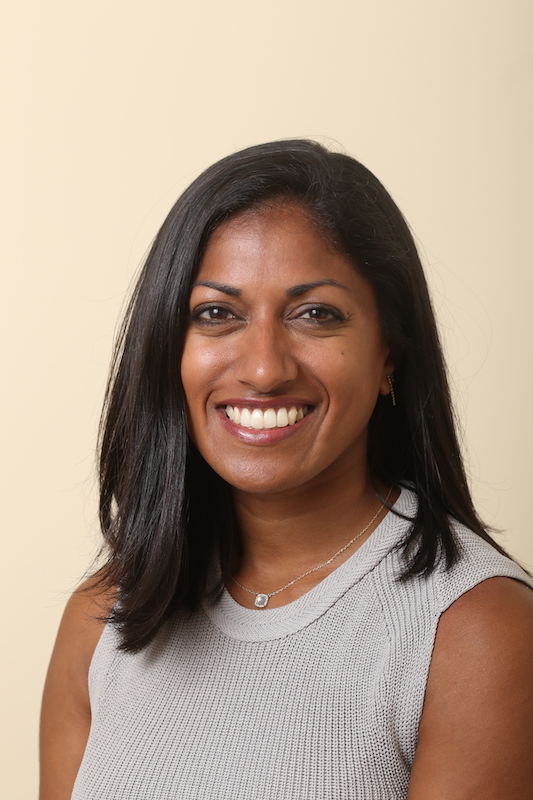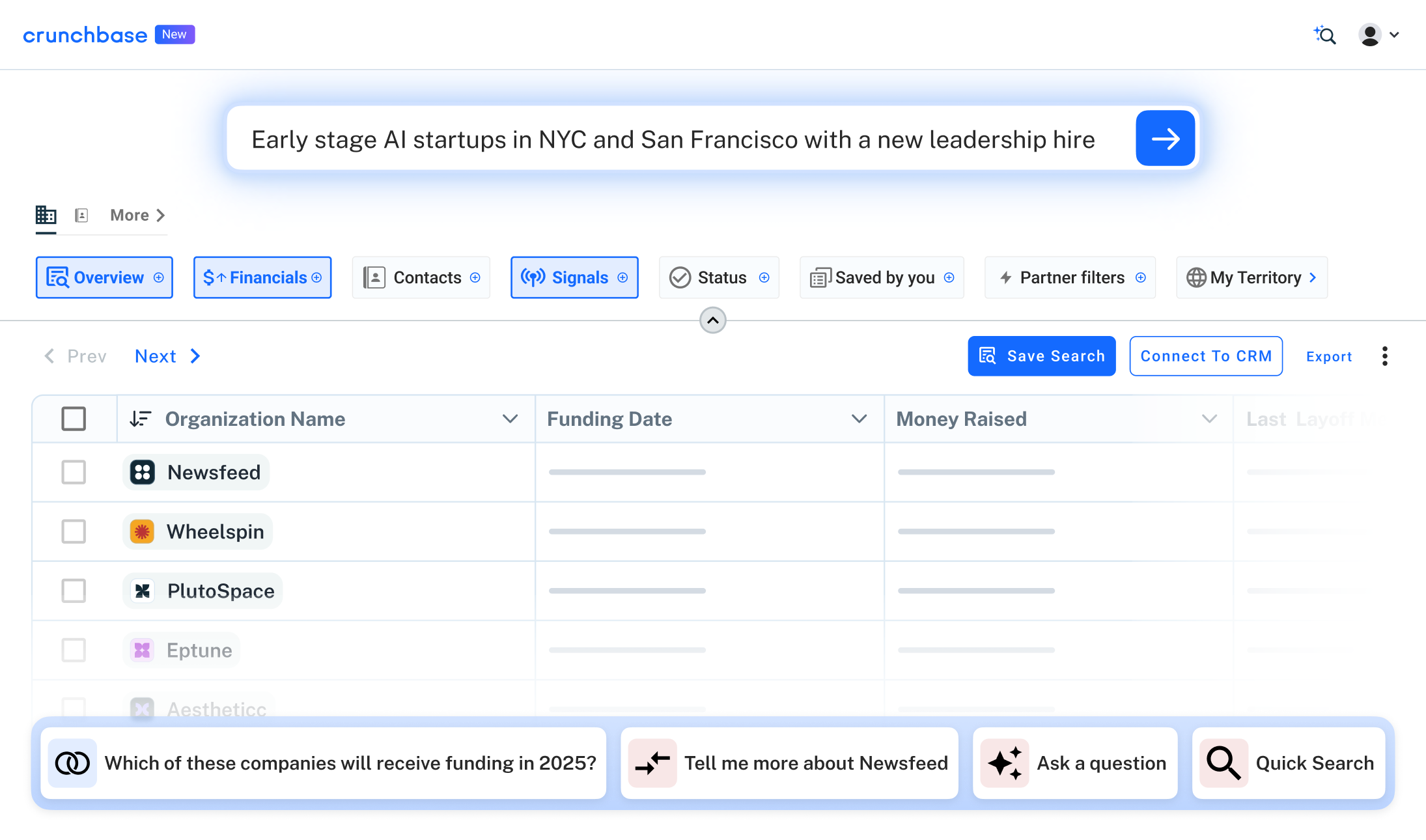The Crunchbase “Female Founder Series,” is a series of stories, Q&As, and thought-leadership pieces from glass-ceiling-smashers who overcame the odds and are now leading successful companies.
Dr. Chitra Akileswaran, MBA, is the co-founder and chief medical officer of Cleo, a leading family benefits platform reinventing how forward-thinking employers support families. A Board Certified OB-GYN, she is concurrently the vice-chair of Obstetrics and Gynecology at Alameda Health System, a large safety-net health system in Oakland, California.

With a background in health care leadership and interest in care delivery innovation, Akileswaran established initial operations and Cleo’s care model. She was responsible for creating the role of the Cleo Guide and ensuring that trust continues to be the central tenet of the Cleo experience. In addition to her clinical role and her work with Cleo, Chitra also holds a lecturer appointment at Harvard Medical School.
Akileswaran previously worked at McKinsey & Co., and received her undergraduate degree from Brown University, her MD from Harvard Medical School, and her MBA from Harvard Business School.
A mother herself, Akileswaran is passionate about supporting the wellness of working parents and their families. In this Q&A, she shares her experiences bridging multiple roles–mother, doctor and business leader–and discusses what inspired her to start Cleo.
Q: Why did you choose to enter the health care field?
I’m obsessed with the ideas of fairness and justice. From a young age, I learned how unfair and unjust the world could be toward women*, often solely by virtue of our biology. As a child, I strove to prove that I could be just as strong and as fast as the boys.
As a young adult, I was often the only woman in my advanced math and science classes. Excelling in male-dominated environments became a point of pride for me, but also began to take a toll. I needed a source of energy and purpose besides proving others wrong; and what that purpose became for me was serving other women as an OB-GYN.
Ob/Gyns have the unique privilege of caring for women in their most intimate, identity-defining moments, often moments of great resilience but also great vulnerability. The fact that this meaning is so packed into my day-to-day work makes me feel like this is not just a job choice, but rather, a lifelong pursuit.
Q: What issues did you see in the parental support field before you started your company?
As I began to think about starting my own family as an ambitious, career-obsessed woman myself, I found the argument between women “having it all” and “leaning in” to be invigorating, but incomplete. I had the benefit of multiple perspectives constantly in view–I had the privilege of attending elite institutions for my education and training, while coming from extremely modest, immigrant beginnings.
I practiced medicine in the most resource-poor environments you could imagine, and had the opportunity to live and work in multiple countries and cultures. What we weren’t talking about was the diversity of the parental experience; specifically, how most people don’t have the luxury of pontificating on how they might balance work and home, because both are required.
The cultural narrative at the time was focused on shifting an individual’s attitude and motivation around work and life, not on the structural changes required to support the next generation of parents and caregivers. Part of that support needs to come from the health care system, which in so many ways falls short.
Knowing everything I did, a part of me wondered if despite my motivation, drive, and professional expertise, would being a working mother be possible or fulfilling for me?
Q: What inspired you to start Cleo?
I embarked on Cleo because we need parenting and caregiving–work traditionally falling into a woman’s domain–to be normalized. Furthermore, we need the work that parents and caregivers do to be valued. Not just through a pat on the back, but economically, in real currency. That’s the only way we can attempt to reach meaningful gender equity in our society.
Unfortunately, COVID has only magnified just how much of the load women carry at home AND at work. I’m grateful that Cleo exists and that our customers have taken a chance on us to change that reality and, at minimum, to simply validate the impossible efforts of so many working families.
Q: What problems were you trying to solve with your company?
Women have historically taken on the lion’s share, if not all, of parenting, caregiving, homemaking, and domestic responsibilities, even as we have increased our participation in the formal economy. This means we are often the ones forced to drop out of the workforce to help our families stay afloat.
This problem was brought to the forefront in 2020 as we saw over 1 million people leave the U.S. workforce in September alone, with the breakdown revealing four times the number of women than men. This is not an accident, and we may never recover those losses.
Our mission at Cleo is to transform the experience of being a working family from a disadvantage to an edge in the workforce. For employers, it’s about positioning the challenges specific to working parents as opportunities to support a major segment of the workforce, reduce unnecessary health care spend, improve loyalty and productivity, and retain valuable women. It’s an investment in the health of your brand and organization, which we believe is fundamental, and will ultimately impact society in ripple effects for generations to come.
Q: What challenge are you most proud of overcoming in your career?
I’m not sure I have quite overcome anything: The more I learn, the more I realize how much I have left to learn. But as I master my craft as a physician and surgeon, I refine my approach as a founder and startup leader and discover who I am as a mother to my 18-month-old son. The challenge that I think I’m most proud of facing is knowing just when to set boundaries and knowing when to stretch.
Anyone who wants to do something important in the world will find themselves between these two poles. Figuring out how to strike an equilibrium not necessarily in a moment, but rather over the course of weeks and months and years is essential to sustainability.
Q: How did you know you were choosing the right investors? What have they brought to the company?
Pitching as part of an all-female founder team, specifically founders of color, on a problem related to women and caregivers in the workplace felt like we were constantly trying to translate a foreign language into one that was understood by investors. Therefore, when we met Niki Pezeshki (a partner at Felicis Ventures), it was so obvious–even easy–to talk about our vision.
He led our Seed round and even before he was a father himself, and before COVID upended our lives, he could see that working parents is a category worth investing in. I believe we had nearly 90 meetings with VCs before Niki took a chance on us and paved a much easier path to our next funding rounds. It’s his early belief in our company that has led us to where we are today: A Series B company working with top employers around the world.
Q: What do you find most rewarding about your experience as a founder so far?
As Cleo’s chief medical officer, my job is to do what’s right, substantive, and deep to support our mission and vision. Whether that means maximizing the health and wellness of mothers and babies, ensuring parents of all kinds can have the career and life they want, or ensuring that anti-racism and inclusivity is an active part of our product experience.
Most importantly, I am grateful to work with such a talented and grounded team that has taken the tiny kernel of what I helped plant five years ago and grow it into an incredible organization.
*I use women as a term to describe cis-women, but honor and seek to elevate the experiences of trans-women, nonbinary individuals, and/or anyone who expresses their gender in a feminine way.
.svg)



.png)
.png)

